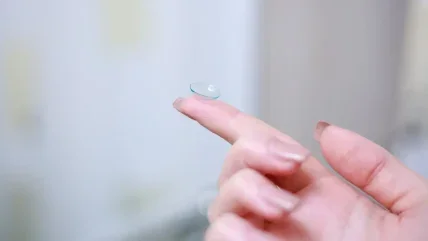
Canada-based eye health company Bausch + Lomb has received the US Food and Drug Administration (FDA) approval for its enVista Envy full range of vision intraocular lens (IOL).
enVista Envy IOL is designed to provide a continuous range of vision with enhanced dysphotopsia tolerance on the widely used enVista IOL platform.
The FDA approval follows the Health Canada approval, granted in May this year.
The enVista Envy hydrophobic acrylic IOL is indicated for primary implantation in the capsular bag of the eye in adult patients for visual correction of aphakia.
It provides improved intermediate and near visual acuity while maintaining comparable distance visual acuity to an aspheric monofocal IOL.
Also, the lens offers less than or equal to 1.0 D preoperative corneal astigmatism after the removal of a cataractous lens to mitigate the effects of presbyopia.
The enVista Envy toric hydrophobic acrylic IOL for visual correction of aphakia and corneal astigmatism after removing a cataractous lens to mitigate the effects of presbyopia.
It improves intermediate and near visual acuity while maintaining comparable distance visual acuity to an aspheric monofocal IOL.
Bausch + Lomb intends to commercially launch enVista Envy IOLs in the US on a limited basis in the coming weeks, and a wider launch in 2025.
The company is also seeking regulatory approvals for the lens in additional markets.
Bausch + Lomb US Surgical vice president and general manager Anthony Wallace said: “We’re confident that US surgeons will agree with what their Canadian colleagues have already told us: enVista Envy delivers exceptional outcomes and meets cataract patients’ high expectations, as well as their own.”
Bausch + Lomb said its Envy lenses deliver superior performance in all lighting conditions building on its ActivSync Optic intelligent energy distribution technology.
The lenses also help surgeons treat a wide range of astigmatic patients more accurately and precisely with 0.5D steps (or less) throughout the cylinder range.
In a multicentre, randomised and controlled clinical trial in 332 subjects, enVista Envy IOL showed superior long-term outcomes in the US.
The study showed that 86% of patients reported little to no irritation due to dysphotopsia (glare, halo, starbursts), with an impressive tolerance profile overall.
In a clinical study of 110 subjects in Canada, 94% of patients reported little to no difficulty viewing close objects, and 93% were satisfied with their vision post-surgery.
Phase 3 US clinical trial principal investigator Alice Epitropoulos said: “I’ve long trusted the enVista platform to deliver excellent outcomes for my cataract patients.
“I expect that having a lens on the same platform that offers a full range of vision with minimal visual disturbances, as well as a toric option for precision astigmatism correction, will significantly enhance my ability to achieve that goal.”






